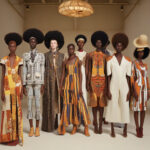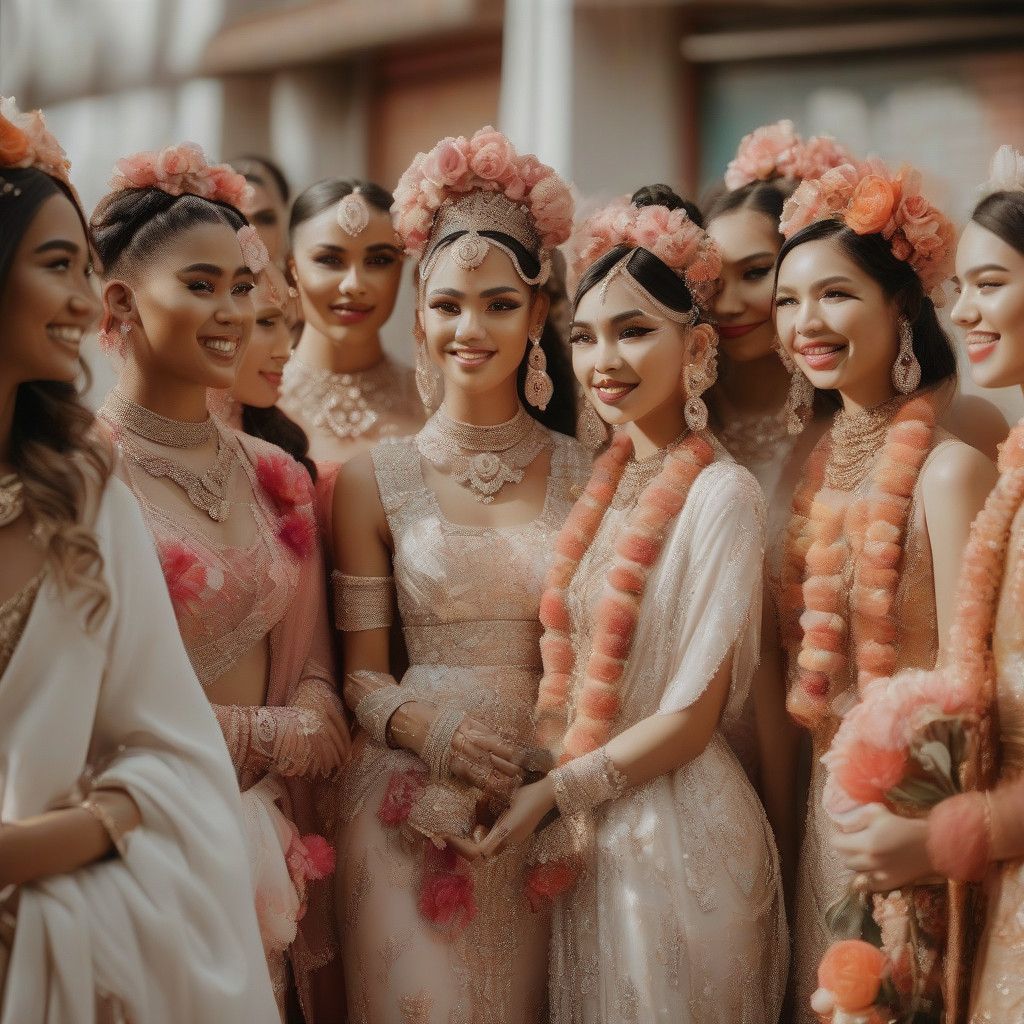As the members of Generation Z begin to head toward marriage, a significant shift in bridal beauty preferences emerges. This development not only highlights the changing tastes of young brides but also presents fresh revenue opportunities for beauty companies. However, it is essential for brands to navigate these waters with savvy marketing strategies to fully realize this potential.
Historically, the bridal beauty industry favored service providers, like hairstylists and makeup artists, over individual cosmetic brands. Yet, as weddings have evolved into curated events often shared on social media, this has created openings for beauty brands to engage directly with brides-to-be. Current trends emphasize a desire for products that contribute to a personal narrative rather than simply adhering to traditional standards.
Gen-Z brides are distinctively fickle; while many lean towards a natural look that showcases their individuality, they also heavily rely on social media to document their experiences. This duality presents a challenge and an opportunity. According to experts, today’s brides seek cosmetic products that will accentuate their features without masking them. They prefer to appear like the best version of themselves rather than trying to mimic others. However, there’s often a desire for specific products that enhance visual impacts on platforms like Instagram and TikTok.
For example, the beauty brand Too Faced has recently reported significant success by tapping into this demographic. By closely observing social media trends, particularly around high-profile weddings, the brand identified a lucrative market when Sofia Richie Grainge’s wedding went viral. Responding to this opportunity, Too Faced launched a limited-edition bridal gift set and created targeted content for multiple platforms, significantly boosting engagement. The company’s emails regarding wedding products had a remarkable 62% higher open rate than standard communications.
Additionally, brands like Jo Malone are creatively positioning themselves in this space by offering personalized experiences. Their ‘Scent Your Wedding’ sessions, where brides can select unique fragrances for their special day, showcase a shift in making the wedding experience memorable and customizable. Such offerings not only provide an intimate experience but also translate into sharing opportunities online, enhancing the brand’s visibility through user-generated content.
Furthermore, the impact of social media influencers cannot be overstated. Weddings today are increasingly organized with ‘content creators’ in mind, often resulting in dedicated teams that capture every intricate detail for sharing online. This trend has led beauty brands to collaborate with creators for product placements, ensuring that they become part of the sought-after “perfect shot” that couples wish to achieve. Makeup artists working with Gen-Z brides have observed that their clients frequently ask for lighter products, favoring fresh and minimalistic appearances that are primed for social media.
Such evolving preferences highlight the necessity for brands to adapt their product lines. Makeup artists note a stark contrast in application requests from Gen-Z brides compared to their Millennial counterparts. Rather than heavy contouring and dramatic eyeshadows, younger brides often seek a more natural look that presents their distinct features. Brands that align their offerings with these aesthetics can find a responsive audience eager for something that resonates with their values of authenticity and simplicity.
Moreover, as more brands venture into this lucrative market, innovation must accompany distribution to stay competitive. For instance, Too Faced’s approaches to curated product sets that are visually appealing and shoppable echo a growing need for convenience within this demographic. Limited-edition releases not only create urgency but also cater to the exclusivity that many Gen-Z consumers crave. Additionally, incorporating educational aspects—such as tutorials for distinctive bridal looks—into marketing strategies can engage potential customers further while providing value.
Ultimately, the Gen-Z bridal beauty market is at a significant crossroads that invites forward-thinking brands to explore new avenues. From crafting personalized experiences to leveraging the influencer culture, brands must consider what resonates with today’s brides. Acknowledging their desire for authenticity and the importance of social media sharing will undoubtedly set the stage for brands looking to capture this emerging market segment effectively.
As the bridal beauty landscape adapts to the preferences of the younger generation, it opens up questions about sustainability, inclusivity, and innovation. Brands poised to address these essentials are likely to thrive in an industry ripe for transformation, ultimately enhancing both beauty and experience for the new generation of brides.











